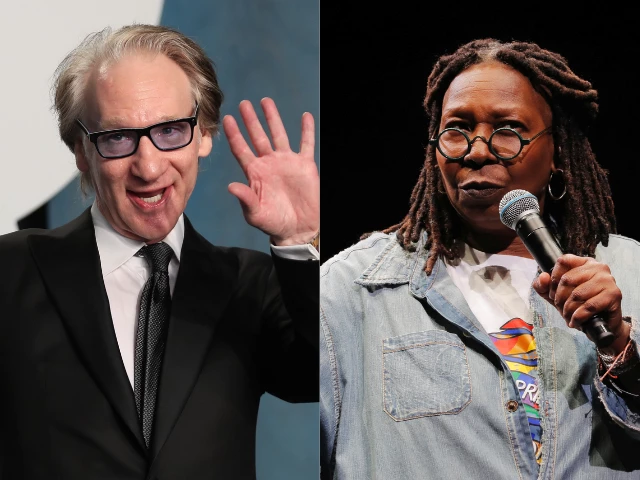Bill Maher says Democrats need to ‘do something’ about ‘The View’ after Whoopi Goldberg’s Iran comments
In the latest episode of “Real Time,” Bill Maher, alongside Texas Republican Representative Wesley Hunt, voiced strong critiques against Whoopi Goldberg’s recent comments on “The View.” In her discussion, Goldberg controversially compared the life experiences of Black Americans to those living under Iran’s extreme theocratic regime. This remark ignited a significant conversation, particularly during a heated exchange with co-host Alyssa Farah Griffin, who was quick to highlight the severe human rights violations occurring in Iran.
Maher, known for his candid and often provocative commentary, remarked on the need for Democratic leaders to reevaluate how they approach sensitive social topics in light of remarks like Goldberg’s. He specifically noted the necessity for them to “do something about ‘The View’,” suggesting that the show’s influence on public discourse could be detrimental. Maher pointed to a noteworthy shift amongst Democrats, calling for more rational discussions on social issues and a move away from what he described as “crazy woke” narratives.
Maher and Hunt Challenge Goldberg’s Perspective
In their discussion, Representative Hunt offered a direct counter-response to Goldberg’s analogy. Sharing his personal experiences as a successful Black man in a predominantly white district, he articulated that progress in America is increasingly reliant on individual merit rather than solely on racial identity. Hunt drew upon his own family history, referencing his great-great-grandfather who endured the harsh realities of slavery, to illustrate the substantial changes that have transpired in American society since those times.
Hunt further advocated for a broader acknowledgment of success, suggesting that narratives focusing on systemic grievances may overlook the importance of personal achievements. He stated that the perspective he offers contradicts Goldberg’s narrative, as he embodies a success story representative of America’s evolving landscape.
Call for Broader Recognition of Individual Achievement
As the conversation continued, Hunt expressed skepticism towards the necessity of specific observances, such as Black History Month, to celebrate Black heritage. He argued that recognition should encompass all Americans equally, irrespective of their background. This assertion sparked a dialogue about the potential pitfalls of categorizing historical experiences based solely on race, asserting that individual stories of success should take precedence.
Maher and Hunt’s remarks reflect a growing divide in the way race and success are perceived in contemporary America. Their advocacy for recognizing individual accomplishments over systemic issues highlights a pivotal shift in discussions surrounding race relations. Both men stressed the significance of personal responsibility, character, and the American dream as foundational narratives that should dominate over divisive rhetoric.
Implications for Democrats and Public Discourse
The episode of “Real Time” encapsulates an urgent call for Democratic leaders to reconsider their approach to race and social matters. As Maher pointed out, the influence of platforms like “The View” extends beyond entertainment, potentially shaping public opinion in polarized ways. By emphasizing the importance of more rational, fact-based discourse, both Maher and Hunt encouraged a collective reevaluation of how societal issues are framed in popular media.
The conversation illustrates an essential moment in political dialogue—one where deep-seated narratives are challenged and where voices advocating for unity and individual merit gain prominence. It remains to be seen how Democrats will respond to Maher’s call to action and whether this will lead to meaningful changes in their approach to discussing race and social issues moving forward.
In conclusion, the critique from Maher and Hunt underscores the need for a balanced conversation around race and achievement, especially for Democratic leaders who may be feeling the pressure to navigate increasingly complex social discussions. Their discourse invites further exploration into how individual narratives of success can reshape the conversations surrounding race in America—challenging mainstream narratives and advocating for a more inclusive acknowledgment of all experiences. It is essential for public figures and leaders to engage fully in these discussions to foster a more constructive public discourse.


